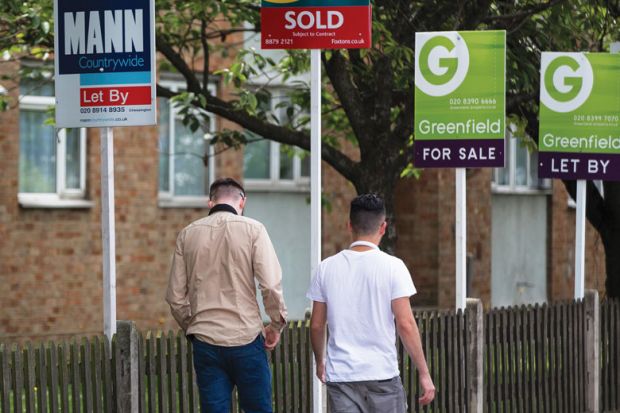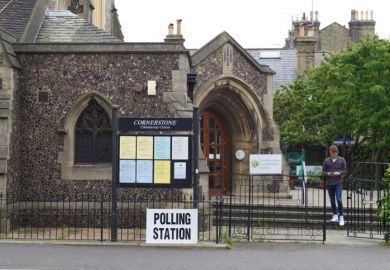The head of the UK’s biggest student housing company saw his pay package grow to £2.7 million last year, with the figures emerging as many renters struggle in the pandemic and amid calls for the Covid crisis to spark accommodation reform.
Richard Smith, chief executive of Unite, saw his total remuneration rise from £2.1 million to £2.7 million in 2019, while chief financial officer Joe Lister’s increased from £1.7 million to £2.2 million, Times Higher Education can reveal.
Mr Smith’s remuneration breaks down into £456,692 in salary; £16,195 in taxable benefits; £80,957 in pension; £519,361 in annual bonus; and £1,653,245 through a long-term incentive plan that includes shares in the company, according to Unite’s most recent annual report.
While the 2019 pay deals predate the pandemic, they emerge as renters’ complaints about their treatment in student accommodation during the Covid crisis make national news. Most domestic students rely heavily on government-provided maintenance loans to pay their rents.
Jo Grady, general secretary of the University and College Union, said it was “absolutely galling to see the bosses of the UK’s largest student landlord raking in millions when so many tenants are being forced to self-isolate”.
“Students should never have been given the impression that they would get a normal experience on campus, and landlords shouldn’t be looking to profit from the government’s and university leaders’ mistakes,” she said.
A Unite spokesman said executive remuneration was “determined by an independent committee and approved by shareholders”.
That remuneration is “predominantly made up of variable compensation based on the achievement of a number of challenging objectives,” including “achieving record student and university satisfaction scores” last year, he added.
When the coronavirus lockdown closed campuses earlier this year, Unite was “the first student accommodation provider to forgo summer term rents, at a cost of £100 million”, and it was also “the first to have Covid-secure status accredited by the British Safety Council”, he said.
On executive pay for 2020 following the pandemic, Unite’s board has introduced “a 30 per cent reduction to salaries of executive directors as well as the suspension of bonus payments”, the spokesman explained.
Meanwhile, many call for the Covid crisis to bring reform of student housing. There are an estimated 1.2 million student renters in the UK, of whom 28 per cent live in university-provided accommodation, 27 per cent in the growing market of private-sector purpose-built student accommodation, and 45 per cent in local communities.
Graham Galbraith, the University of Portsmouth vice-chancellor, who has called for rent controls and government-university collaboration on building student accommodation, noted cases where private firms had obliged students to pay rent for empty rooms when universities were closed by lockdown.
“Fixing the problem of inadequate student protections and consumer rights is a moral and practical imperative,” he said. “Government needs to realise how powerful an actor it is in this area.”
“The student accommodation sector is broken,” said Hillary Gyebi-Ababio, the National Union of Students’ vice-president for higher education. She highlighted features such as students being “forced” to sign contracts “up to a year in advance” and “ludicrous” rents. The Covid crisis has “highlighted many of these problems, but now it is time to act”, she added.
Martin Blakey, chief executive of student housing charity Unipol, said lower room occupancy rates during the pandemic would mean “a very unprofitable year” for for-profit operators.
But that would bring a beneficial “cooling-off” after a period where investors were told that student accommodation was a “licence to print money”, he added. This should prompt a move away from “very expensive studios” for a “rich minority” towards “a more affordable cluster flat pattern”, he argued.
Unite’s spokesman said its offer “is focused on the provision of safe, affordable homes for students”, with over 90 per cent of its accommodation “composed of en-suite bedrooms in cluster flats” and “priced at the mid-point of the market, with flexible contract terms, all-inclusive bills and many other value-added features”.
Register to continue
Why register?
- Registration is free and only takes a moment
- Once registered, you can read 3 articles a month
- Sign up for our newsletter
Subscribe
Or subscribe for unlimited access to:
- Unlimited access to news, views, insights & reviews
- Digital editions
- Digital access to THE’s university and college rankings analysis
Already registered or a current subscriber? Login








